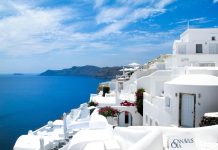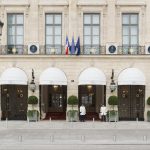In the heart of bustling Midtown Manhattan, amid the eclectic mix of hot dog vendors, taxi cabs, and high-end boutiques, stands 1 Hotel Central Park—a testament to the fusion of luxury and sustainability. Part of the 1 Hotels brand, known for its commitment to "sustainable luxury," the Central Park outpost is a haven where nature coexists with the urban landscape.
With sustainability gaining prominence in travel preferences, 1 Hotel's philosophy of high luxury with low environmental impact aligns with the evolving demands of conscientious travelers. Euromonitor's Sustainable Travel Index highlights that nearly 80% of travelers are willing to pay a premium of at least 10% for sustainable features, reflecting a growing trend in eco-friendly travel.
1 Hotel Central Park, like its counterparts globally, adheres to a high-low philosophy, seamlessly integrating reclaimed and natural materials. A distinctive three-story living wall of English ivy on the building's facade serves as a reminder that amidst the city's chaos, nature can thrive. The hotel's construction repurposed redwood staves from New York City water tanks and timbers from local barns, incorporating them into the guestrooms' design.
All 1 Hotel properties hold LEED or BREEAM certifications, with a commitment to carbon neutrality for U.S. locations. Raul Leal, CEO of SH Hotels & Resorts, the company behind 1 Hotels, emphasizes that sustainability is woven into the brand's DNA, connecting each property with its unique surroundings.
Beyond certifications, 1 Hotel subtly integrates eco-conscious practices into the guest experience. Initiatives include a shower timer encouraging water conservation, fully electric luxury Audi house cars for guests, and a lobby farmstand showcasing imperfect produce that would otherwise be discarded.
Sustainability isn't exclusive to 1 Hotels; other luxury players like Six Senses and Banyan Tree have dedicated funds and initiatives. Six Senses channels a percentage of revenue towards habitat restoration, while Banyan Tree operates the "Greater Good Grant," supporting communities in its presence.
True to the luxury and sustainability blend, these brands recognize the importance of individual well-being. The focus extends beyond environmental stewardship to encompass wellness programs, holistic treatments, and spiritual fitness, creating a harmonious coexistence of opulence and eco-conscious living.
While embracing such a mindset doesn't come without costs, with rates for eco-luxury resorts reaching well into four figures, these establishments believe that the investment in both guest experience and environmental stewardship is essential for a truly enriching and sustainable future.

























